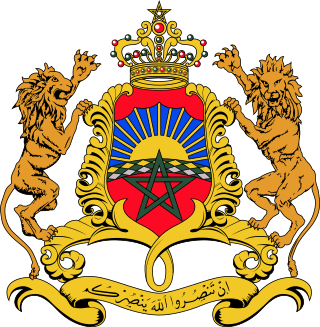Visa policy of Morocco
Policy on permits required to enter Morocco From Wikipedia, the free encyclopedia
A foreign national wishing to enter Morocco must obtain a visa unless they are a citizen of one of the countries eligible for visa exemption.
On July 10, 2022, the Moroccan government launched an e-Visa system[1] to facilitate the granting of visas to foreign nationals subject to this formality.
Visa policy map

Morocco
Visa not required (90 days)
Visa not required (30 or 60 days)
Authorisation Electronic Voyage Morocco (ETA)
eVisa
Visa required (Conditional eVisa may apply except certain citizens)
Visa exemption
Summarize
Perspective

Citizens of the following countries and territories can enter Morocco visa-free for up to 90 days (unless otherwise noted):[2][3]
|
|
1 – 60 days
2 – 30 days
3 - 30 days within a 180-day period
4 – for holders of British passports, only British citizens, British Nationals (Overseas) and British subjects with a Certificate of Entitlement to the Right of Abode issued by the UK are eligible for visa-free entry.
Electronic Travel Authorization (AEVM)
Electronic Travel Authorization (AEVM) is required for nationals of countries exempt from visa requirements. In the future, AEVM will apply to all visa-exempt countries, except for nationals with a valid Moroccan residence permit, transit passengers and spouses of Moroccan citizens. Those married to Moroccan nationals must provide supporting documents upon arrival.
Citizens of the following countries do not require a visa but must obtain an AEVM (ETA) in advance to enter Morocco.[4]
| Date of visa changes | ||
|---|---|---|
|
Non-ordinary passports
Holders of passports issued by the following countries are allowed to enter and remain in Morocco for a maximum period of 90 days.[17]
D - Diplomatic passports
O - Official passports
S - Service passports
Sp - Special passports
 - In addition, visa is not required for United Nations Passport Holders for up to 90 days.
- In addition, visa is not required for United Nations Passport Holders for up to 90 days.
Future changes
Morocco has signed visa exemption agreements with the following countries, but they have not yet entered into force:
| Country | Passports | Agreement signed on |
|---|---|---|
| Ordinary | January 2024 | |
| Diplomatic | June 2024 | |
| Ordinary | March 2025 | |
| Ordinary | March 2025 | |
Electronic Visa (eVisa)
Summarize
Perspective
Regular eVisa
Citizens of the following countries holding ordinary passports may apply for an e-Visa without further document requirement:[1]
Conditional eVisa
Citizens of most other countries and regions that are not visa-exempt must apply for a visa in advance from one of the diplomatic missions of Morocco. However, these citizens may still apply for an e-Visa if they hold a valid visa or permanent residency document issued by one of the following countries:
|
1 - For holders of a residence permit.
Only visas physically stamped in the passport or residence cards are recognized.
Citizens of the following countries and regions cannot apply for a regular and conditional e-Visa:
Additionally, individuals of any nationality who are participating in an event in Morocco are eligible to apply for an eVisa, regardless of whether they hold a substitute visa or residence permit.
See also
Wikivoyage has a travel guide for Morocco.
References
External links
Wikiwand - on
Seamless Wikipedia browsing. On steroids.
